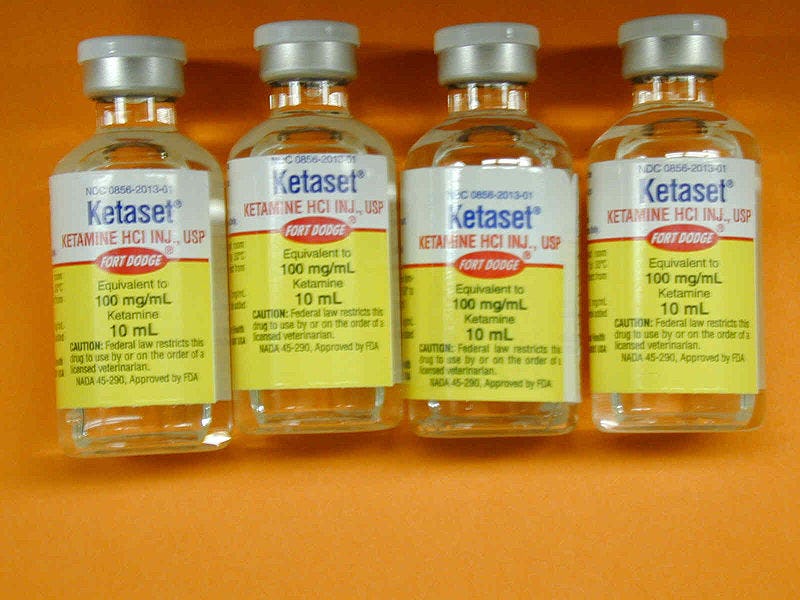Ketamine Appears to Work as an Emergency Anti-Suicide Treatment
Ketamine's really cleaning up its reputation.

Ketamine is a powerful sedative that gained a lot of notoriety in the ‘90s for its use as a rave drug. But in the last couple of years, it’s gone legit. Doctors have recognized its potential as an anti-depressant that can be used when other therapies don’t work and have even begun to explore its use for treating migraines.
Adding to the medical literature on ketamine’s use as a depression treatment, a paper published in The American Journal of Psychiatry in early December shows that clinically depressed patients treated with ketamine had a major reduction in suicidal thoughts compared to a control group that didn’t received the drug.
Just as importantly, the patients experienced a measurable reduction in suicidal thoughts, measured by self-reporting, in just 24 hours. This suggests that ketamine is a promising addition to traditional anti-depressants, which can take weeks to start working — if they work at all.
Ketamine used illicitly is usually dried on glass and scraped up, but in a clinical setting it's administered by an intravenous infusion.
Depression is a challenging condition to treat because psychiatrists can’t necessarily agree on its chemical causes. So, when a treatment shows benefits as rapid and positive as ketamine, they take notice. As the United States suicide rate increased 24 percent between 1999 and 2014, doctors are keen on finding solutions.
In this trial, 80 patients with major depressive disorder — 43 of whom were already taking an antidepressant of some sort — had checked into the New York State Psychiatric Institute for the study. The experimental group received an intravenous ketamine infusion, while the control group received an infusion of the anesthetic midazolam, which is better known by its brand name, Versed. Just one day after treatment, 55 percent of the ketamine group reported a 50 percent or greater reduction in suicidal ideation, compared to 30 percent of the control group. They also experienced a greater improvement in mood compared to the control group. These effects lasted for six weeks.
“It does suggest ketamine treatment can help someone who’s in a really serious suicidal state get out of that quickly,” first author Michael Grunebaum, an associate professor of psychiatry at Columbia University Medical Center, told Gizmodo. “Certainly, it would be a relatively simple treatment to provide at hospitals.”
Ketamine still isn’t approved by the U.S. Food and Drug Administration for treating depression, but continued positive outcomes, like those found in this study, should help change that.